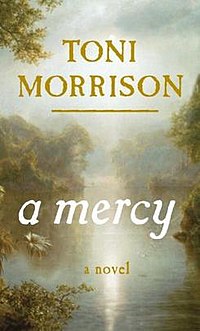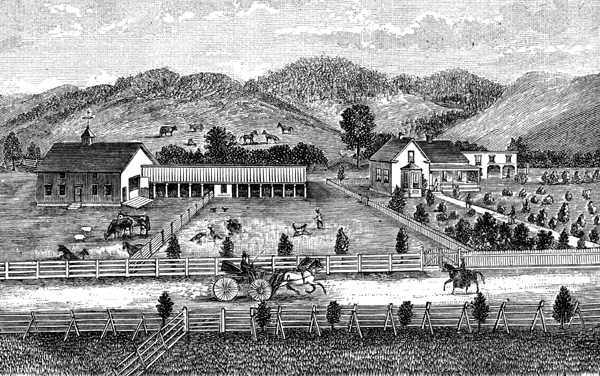Florens, a slave, lives and works on Jacob Vaark's rural New York farm. Lina, a Native American and fellow laborer on the Vaark farm, relates in a parallel narrative how she became one of a handful of survivors of a smallpox plague that destroyed her tribe. Vaark's wife Rebekkah describes leaving England on a ship for the new world to be married to a man she has never seen. The deaths of their subsequent children are devastating, and Vaark accepts a young Florens from a debtor in the hopes that this new addition to the farm will help alleviate Rebekkah's loneliness. Vaark, himself an orphan and poorhouse survivor, describes his journeys from New York to Maryland and Virginia, commenting on the role of religion in the culture of the different colonies, along with their attitudes toward slavery.
All these characters are bereft of their roots, struggling to survive in a new and alien environment filled with danger and disease. When smallpox threatens Rebekkah's life in 1692, Florens, now sixteen, is sent to find a black freedman who has some knowledge of herbal medicines. Her journey is dangerous, ultimately proving to be the turning point in her life.
Morrison examines the roots of racism going back to slavery's earliest days, providing glimpses of the various religious practices of the time, and showing the relationship between men and women in early America that often ended in female victimization. They are "of and for men," people who "never shape the world, The world shapes us." As the women journey toward self-enlightenment, Morrison often describes their progress in Biblical cadences, and by the end of this novel, the reader understands the significance of the title, "a mercy."
Toni Morrison's A Mercy was a read for the fiction book club I attend. It is a book that is all about slavery; women , indentured and African American.
When I went to talk with the group I said "okay sway me because I don't have any feelings about this book at all." After a good hour of discussion I am glad I read the book, see a lot more than I did initially but feel that the book missed its target somehow since I normally have passionate feelings towards books of this nature.
Each section/chapter of the book is told from a different characters point of view. The sections show how the characters judge other characters, themselves and the world around them. You, as the reader, get to see the inside workings of the characters and once it is all said and done you have a completely rounded story.
All the women characters are orphaned, either at childhood or by a family sending them off. Jacob, a Dutch merchant trying to make his living in Maryland, brings these women together and they turn into a family, dysfunctional, but still a family. It is the effect of Jacobs life and his passing that shapes the story of these women.
In the end, the final section has an extremely powerful line said by Florens mother (who you do not see until the end, she only shows up in Florens memories).
" ... to be given dominion over another is a hard thing; to wrest dominion over another is a wrong thing; to give dominion of yourself to another is a wicked thing." pg 196
Leaves one thinking doesn't it.
I am glad I read the book but it won't go down as one of the best reads I've ever had. It was a good book club book because of the discussion.
I'm linking up with






1 comment:
Sorry I'm just now making it over here....I thought I'd already read the posts, but we have had a terrible time of it the past two weeks with school. We need to have coffee once school's out!
I bet this book did make for a wonderful book club discussion. That's what makes book club meetings special because of the lively discussion about books you wouldn't normally read.
This is a great review, Caroline. LOVE it! Thanks for linking-up!
xo,
RJ
Post a Comment